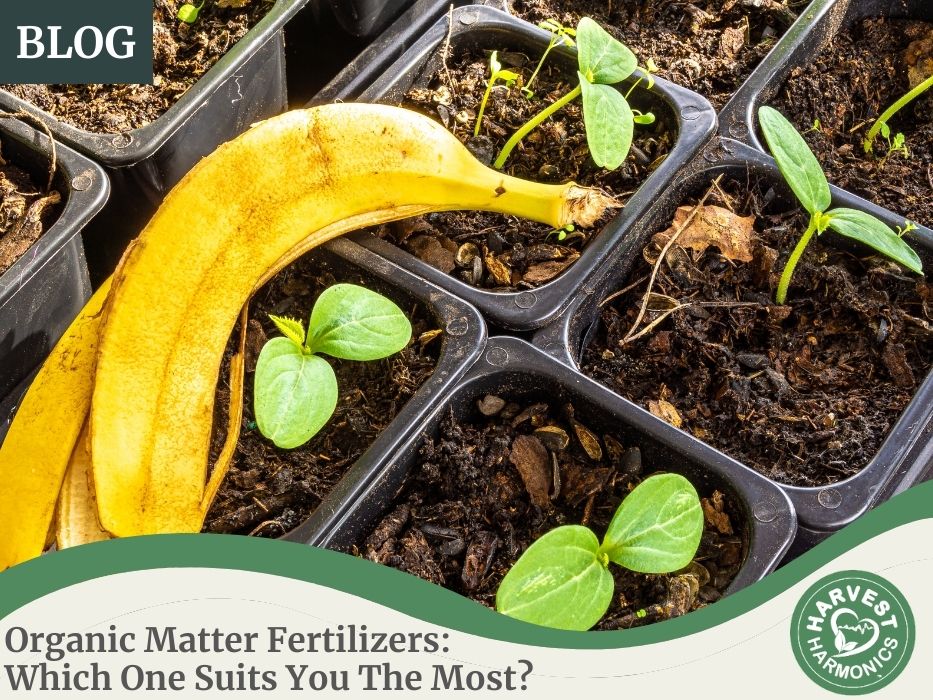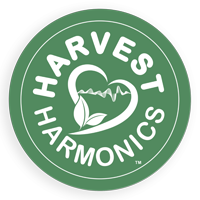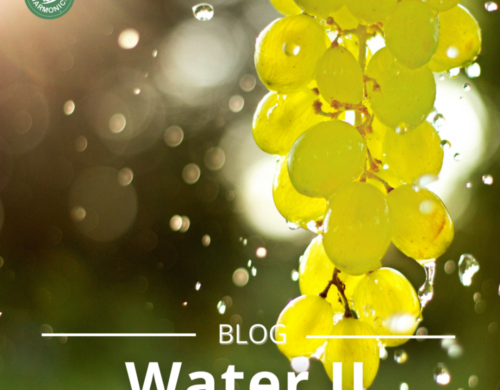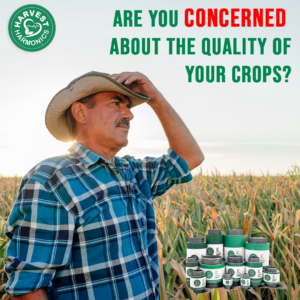Organic Matter Fertilizers: Which One Suits You The Most?

Organic agriculture can be described as a form of agriculture that uses sustainable natural resources and strategies such as the application of biofertilizers, biological pest control, and crop rotation. Thus, organic farmers use natural pesticides and fertilizers, which differs from traditional agriculture using synthetic fertilizers, pesticides, and growth regulators to improve crop yields and hormones and antibiotics to increase meat and milk production in animals].
Considering the problems caused to the environment and human health by the overuse of synthetic agrochemicals, we present this alternative involving sustainable and ecofriendly materials, some of which are readily available.
Organic Matter Fertilizers
The enormous amounts of chemical fertilizers applied to increase crop production has polluted the water, soil, and air at a large scale. In turn, this has increased consumers’ mistrust concerning the quality and safety of food production. Organic farming has been promoted to restore soil health and fertility status through the addition of organic matter. This is a common practice among farmers because it improves physical, chemical, and biological soil properties, in addition to supplying plants with nutrients. Farmers need to return to traditional methods using crop residues and animal waste such as manure.
Some of the sources of organic manure are provided below:
Crop Residues
Crop residues are materials (non-photosynthetic plants) left on cultivated soils after crops have been harvested. They are considered an effective measure against erosion because they can improve soil structure, increase the soil organic matter content, reduce evaporation, and fix CO2 in the soil. Moreover, they can be used in the production of biofuel.
The usual practices of crop management include (1) disposal in landfills and (2) the incineration of these residues under minimally controlled conditions, which aggravates air pollution, in terms of increasing the emissions of particulate material, as well as increasing CO2 emissions. An improvement to this practice corresponds to the use of this biomass to generate energy in a sustainable way.
Moreover, the incorporation of these residues, as green manure, can provide nitrogen to the soil, through biological nitrogen fixation, increasing the supply of N to subsequent crops, allowing the reduction of chemical fertilizer applications. In general, most used green manure comes from legumes, although its exclusive use is not very advantageous because it provides a short period of supply of N due to its rapid decomposition (3–4 weeks), so it is not very suitable for application to crops that have a very long crop cycle [28]. In this sense, the effect of the use of green manure from legumes and non-legumes, independently and in combination, has been studied to improve the yield of various crops. In this way, the incorporation of green manure improves the chemical, biochemical, and microbiological characteristics of the soil. Considerable research has been done regarding the improvement in bacterial communities of soils undergoing treatment with green manure, finding that its application increased the diversity of the bacteria during decomposition. On the other hand, the use of certain green manures has allowed the control of weeds and nematodes, without affecting the crop yield, allowing these fertilizers to be used as biofumigants.
Animal Manure
Animal manure is used to fertilize crops and grasslands, leading to a relevant reduction in the use of N fertilizer. The availability of animal wastes is projected to rise in future decades, specifically in developing countries. The numerous organic manures of animal origin include bird manure (specifically poultry manure), bovine manure, sheep manure, and pig manure, among others. The availability and use of such manures for crop production depend on the geographical area, manure price, extent of manure production, and management [42–44]. Marta et al. [45] studied the influence of the application of animal manures in reducing the toxicity of soils contaminated with heavy metals, finding that their application corresponds to a good alternative of phytoremediation.
Compost
One of the most important management strategies for solid organic waste is composting, which is a process that involves the biooxidative decomposition of organic matter. Composting can produce high-quality products that are effective for application in agriculture, due to its cost-effectiveness, easy operation, and environmental friendliness. In this sense, the composting of cattle manure has a variety of agricultural benefits, such as decreasing the mass and water content, inhibiting pathogens, killing weed seeds, and producing stable and spreadable organic matter. For example, in Spain, farmers use a substitute approach for cattle manure management through composting on intensive livestock farms to obtain a healthier useful agricultural product.
The quality of the compost depends on factors such as the presence of inappropriate materials, such as glass or plastic, which can affect the concentration of heavy metals, electrical conductivity, and decomposition rate, among others. Within the composting process, greenhouse gases (GHGs) are produced, such as nitrous oxide (N2O), methane (CH4), and ammonia (NH3). Although the generation of these GHGs is lower than when using livestock manure to improve the yield of certain crops, GHG emissions from compost can be reduced using chemical additives (salts of PO4 3−, Mg2+, superphosphate, gypsum, etc.) that promote chemical reactions in the compost substrate in relation to the renewal processes of N; physical additives (biochar, zeolites, bentonites, sand, soil, etc.), which adsorb or change the physical factors of the compost; and microbials (ammonia-oxidizing bacteria, etc.), i.e., microorganisms that affect the renewal processes of N.
Source: Duran-Lara, E. F., Valderrama, A., & Marican, A. (2020). Natural organic compounds for application in organic farming. Agriculture, 10(2), 41.
Press Room

Agricultural Technology for Farmers in India
Harvest HarmonicsTM New Biophysics Agricultural Technology For Farmers In India The Agricultural Biophysics technology, 20…
1

Organic Earth Tech, OETI, Launches One Million Dollar Technology
After hurricanes Maria and Irma, Puertorrican farmers are yet to receive the needed aid to recover. Organic Earth Tech…
0

Produce More From Less
CEO Harvest Harmonics Frank Arlia speaking at Replenish. Earth interview by Tia Kansara – London Climate Action Week. How…
0

Replenish Earth and the Environmental RE Talk Series
Replenish Earth and the environmental RE Talk Series event that reunited the top thinkers in the world Harvest Harmonics…
1
Related Posts
2024 India Just Agriculture Frank’s presentation
https://www.youtube.com/watch?v=g_4vdtXBVsA&ab_channel=HarvestHarmonics The Crop Booster by Kyminasi Plants consists of...


